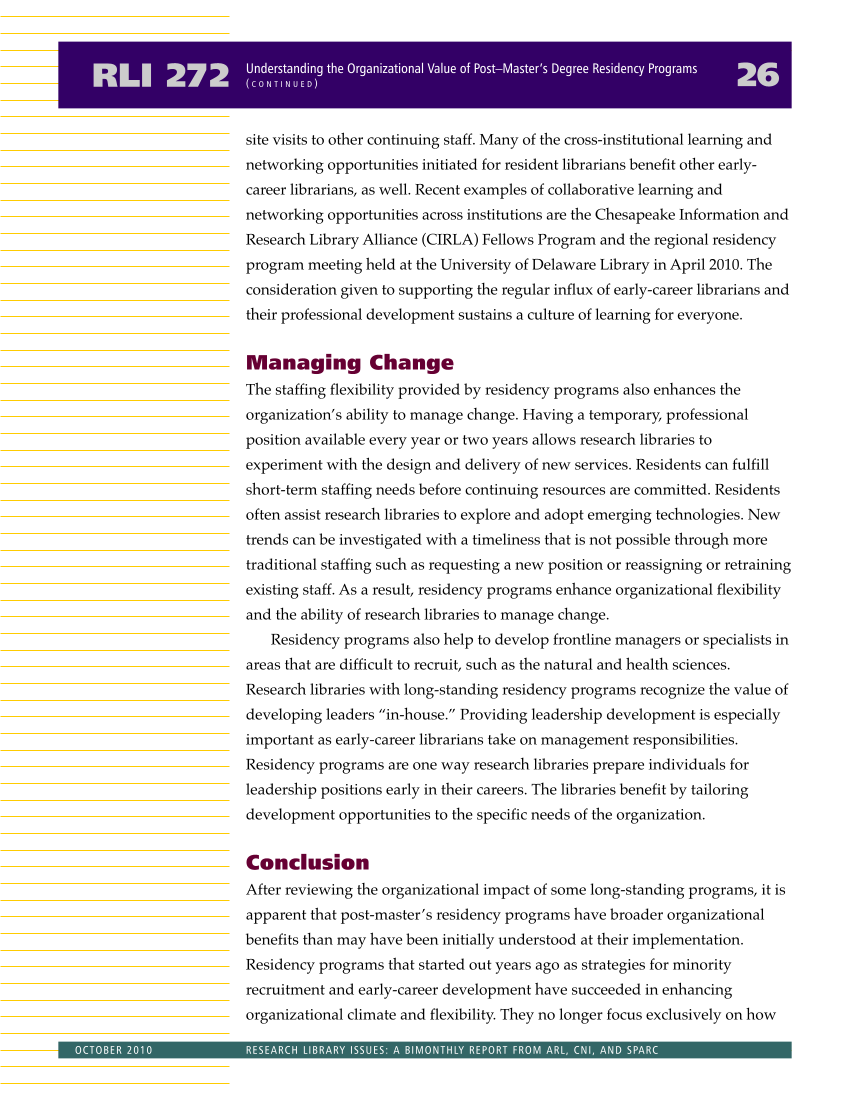site visits to other continuing staff. Many of the cross-institutional learning and networking opportunities initiated for resident librarians benefit other early- career librarians, as well. Recent examples of collaborative learning and networking opportunities across institutions are the Chesapeake Information and Research Library Alliance (CIRLA) Fellows Program and the regional residency program meeting held at the University of Delaware Library in April 2010. The consideration given to supporting the regular influx of early-career librarians and their professional development sustains a culture of learning for everyone. Managing Change The staffing flexibility provided by residency programs also enhances the organization’s ability to manage change. Having a temporary, professional position available every year or two years allows research libraries to experiment with the design and delivery of new services. Residents can fulfill short-term staffing needs before continuing resources are committed. Residents often assist research libraries to explore and adopt emerging technologies. New trends can be investigated with a timeliness that is not possible through more traditional staffing such as requesting a new position or reassigning or retraining existing staff. As a result, residency programs enhance organizational flexibility and the ability of research libraries to manage change. Residency programs also help to develop frontline managers or specialists in areas that are difficult to recruit, such as the natural and health sciences. Research libraries with long-standing residency programs recognize the value of developing leaders “in-house.” Providing leadership development is especially important as early-career librarians take on management responsibilities. Residency programs are one way research libraries prepare individuals for leadership positions early in their careers. The libraries benefit by tailoring development opportunities to the specific needs of the organization. Conclusion After reviewing the organizational impact of some long-standing programs, it is apparent that post-master’s residency programs have broader organizational benefits than may have been initially understood at their implementation. Residency programs that started out years ago as strategies for minority recruitment and early-career development have succeeded in enhancing organizational climate and flexibility. They no longer focus exclusively on how RLI 272 26 Understanding the Organizational Value of Post–Master’s Degree Residency Programs ( C O N T I N U E D ) OCTOBER 2010 RESEARCH LIBRARY ISSUES: A BIMONTHLY REPORT FROM ARL, CNI, AND SPARC

































